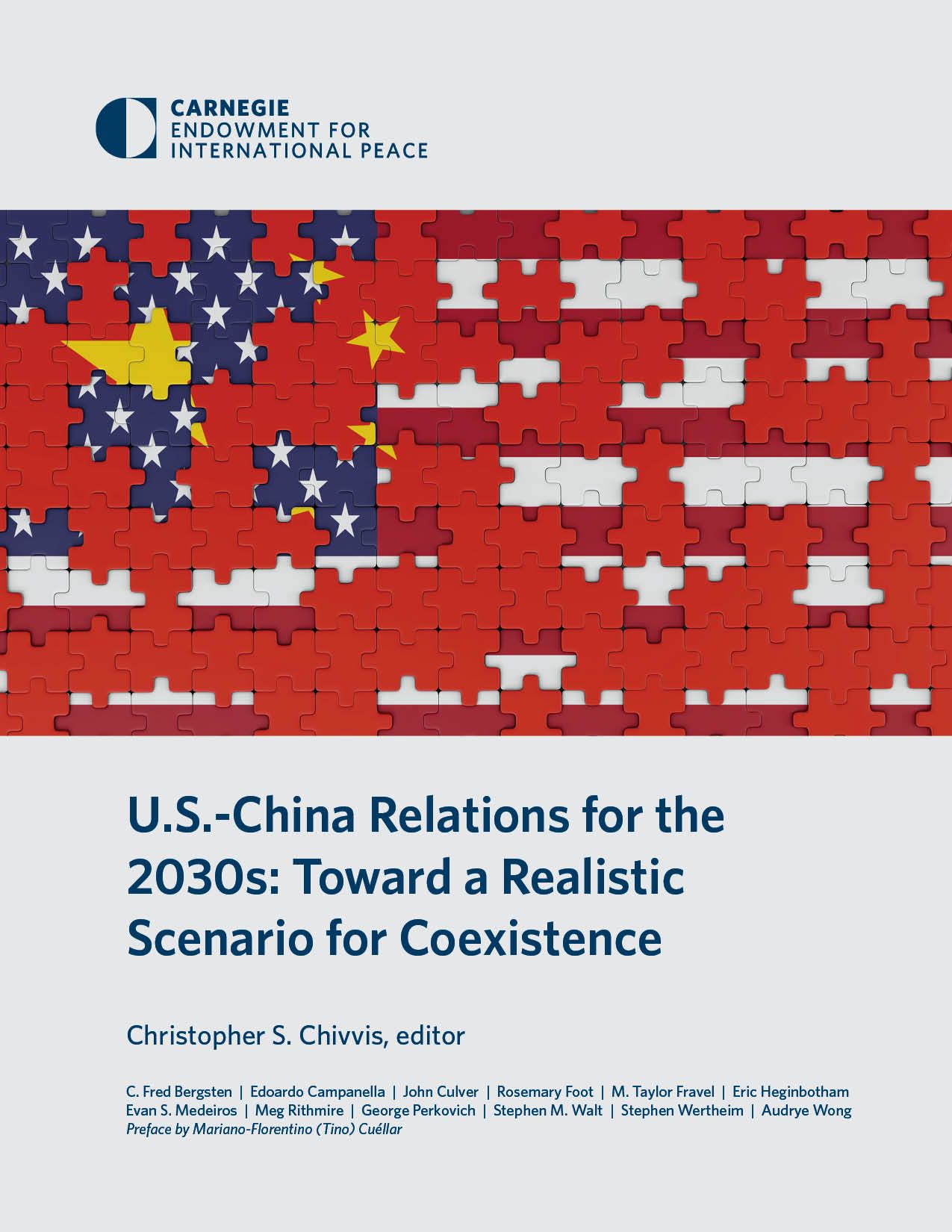Report on the Detention and Alleged Human Rights Abuses of Andry Hernández Romero in Relation to Sustainable Development Goals
Case Summary
This report details the case of Andry Hernández Romero, a Venezuelan national who was deported from the United States and subsequently detained for 125 days in the Center for the Confinement of Terrorism (CECOT) in El Salvador. Upon his release and return to Venezuela, Hernández Romero has made serious allegations of torture, sexual abuse, and inhumane treatment. This case presents significant challenges to the achievement of several Sustainable Development Goals (SDGs), particularly those concerning justice, equality, and human well-being.
Violations of SDG 16: Peace, Justice and Strong Institutions
The circumstances surrounding Hernández Romero’s deportation and detention represent a severe breach of the principles enshrined in SDG 16, which aims to promote just, peaceful, and inclusive societies.
- Erosion of Due Process (Target 16.3): The deportation was executed under the revived Alien Enemies Act, a wartime-era law that permitted the expulsion of individuals without judicial hearings or asylum screenings. This action directly contravenes the target of ensuring equal access to justice for all. Hernández Romero was denied due process despite having entered the U.S. legally and passing an initial credible fear interview.
- Violence and Torture by State Actors (Target 16.1): The detainee alleges severe physical and psychological abuse by Salvadoran authorities at CECOT. These claims, if substantiated, constitute a grave violation of the goal to reduce all forms of violence. Allegations include:
- Beatings with nightsticks resulting in fractured ribs, fingers, and toes.
- Being shot with rubber projectiles.
- Confinement in dark cells.
- Sexual abuse by guards.
Implications for SDG 10: Reduced Inequalities and SDG 5: Gender Equality
The case highlights systemic inequalities and vulnerabilities faced by migrants and LGBTQ+ individuals, undermining progress towards SDG 10 and SDG 5.
- Discrimination and Vulnerability of Migrants (Target 10.7): The deportation of over 250 Venezuelan men to a third-country prison without legal recourse fails the objective of facilitating orderly, safe, and responsible migration. The justification for Hernández Romero’s deportation—tattoos misinterpreted as gang affiliation—points to discriminatory profiling that disproportionately affects marginalized groups.
- Persecution Based on Sexual Orientation (Target 10.2): Hernández Romero originally fled Venezuela seeking asylum from persecution based on his sexual orientation. His subsequent treatment and deportation without a proper asylum hearing demonstrate a failure to protect vulnerable individuals and promote their inclusion, as mandated by SDG 10.
- Gender-Based Violence (Target 5.2): The specific allegation of sexual abuse by male guards constitutes a form of gender-based violence. This act of violence in a state-run institution is a direct affront to the goal of eliminating all forms of violence against all individuals.
Contravention of SDG 3: Good Health and Well-being
The alleged treatment during detention is in direct opposition to the promotion of physical and mental health as outlined in SDG 3.
- Physical and Psychological Trauma (Target 3.4): The reported torture, including beatings and shootings with projectiles, has caused significant physical injuries. The experience, described as an “encounter with torture and death,” inflicts profound psychological trauma, undermining mental health and well-being.
- Denial of Basic Needs: The allegation of being denied adequate food while in custody represents a failure to provide for basic health needs, a fundamental component of ensuring well-being.
Institutional Responses and Legal Implications
The responses from various governmental bodies and legal advocates underscore the complex challenges to justice and accountability in this case.
- The Venezuelan Attorney General’s office has announced an investigation into Salvadoran President Nayib Bukele regarding the alleged torture of Venezuelan nationals.
- The U.S. Department of Homeland Security has dismissed the abuse claims, labeling the deported men as “criminal, illegal gang members.”
- Legal representatives from the Immigrant Defenders Law Center express grave concern for Hernández Romero’s safety in Venezuela, the country he originally fled. They are exploring third-country relocation, highlighting the continued failure to provide a durable and safe solution, which is a core tenet of responsible migration management (SDG 10.7).
- Advocates warn that the case sets a dangerous precedent, where individuals are deported without due process to face torture, undermining the rule of law and international human rights standards central to the 2030 Agenda for Sustainable Development.
Analysis of Sustainable Development Goals (SDGs) in the Article
-
Which SDGs are addressed or connected to the issues highlighted in the article?
The article highlights several issues that directly connect to the following Sustainable Development Goals:
-
SDG 16: Peace, Justice and Strong Institutions
This is the most prominent SDG in the article. The story of Andry Hernández Romero is a clear case of injustice, lack of due process, and violence perpetrated by state authorities. The article details his detention “without hearings or asylum screenings,” the use of a “wartime-era law to deport people,” and the physical and sexual abuse he endured in a Salvadoran prison. His experience points to a failure of institutions in both the U.S. (deportation without due process) and El Salvador (torture in prison) to protect human rights and uphold the rule of law.
-
SDG 10: Reduced Inequalities
This goal is relevant as the article discusses the vulnerability of a specific group—migrants and asylum seekers. Hernández Romero was targeted and deported, with his tattoos being used as “alleged proof of membership in the Tren de Aragua gang,” despite having no criminal record. Furthermore, he fled his home country “because he feared persecution for his sexual orientation.” This highlights discrimination based on national origin, migrant status, and sexual orientation, all of which are central to the mission of reducing inequalities.
-
SDG 5: Gender Equality
While this goal primarily focuses on women and girls, its underlying principle is to end all forms of discrimination and violence based on gender and sex. The article explicitly states that Hernández Romero, a gay man, fled Venezuela “because he feared persecution for his sexual orientation.” He was also allegedly “sexually abused by the same Salvadoran authorities who guarded us.” This connects directly to the goal’s aim of eliminating all forms of violence and discrimination, including those based on sexual orientation.
-
-
What specific targets under those SDGs can be identified based on the article’s content?
Based on the issues discussed, several specific targets can be identified:
-
Target 16.1: Significantly reduce all forms of violence and related death rates everywhere.
The article provides a direct account of violence. Hernández Romero describes his experience as “an encounter with torture and death,” detailing how he and others were “beaten, shot with rubber projectiles,” and left with “fractured ribs, fractured fingers and toes.” This directly relates to the target of reducing all forms of violence.
-
Target 16.2: End abuse, exploitation, trafficking and all forms of violence against and torture of children.
Although the victim is an adult, the core element of this target—ending torture—is central to the article. The lawyer’s statement that the men were “physically, verbally, and psychologically tortured” and Hernández Romero’s allegation of sexual abuse by guards are powerful testaments to the relevance of this target.
-
Target 16.3: Promote the rule of law at the national and international levels and ensure equal access to justice for all.
The article highlights a complete breakdown of the rule of law. Hernández Romero was “marked for deportation without due process” and sent to El Salvador “without hearings or asylum screenings.” This denial of legal process and access to justice is a core theme of the article.
-
Target 10.3: Ensure equal opportunity and reduce inequalities of outcome, including by eliminating discriminatory laws, policies and practices.
The use of the “revived Alien Enemies Act” to “deport people without hearings” is a clear example of a discriminatory policy being applied, leading to an unequal and unjust outcome for Hernández Romero and over 250 other Venezuelan men.
-
Target 10.7: Facilitate orderly, safe, regular and responsible migration and mobility of people, including through the implementation of planned and well-managed migration policies.
The case illustrates the opposite of this target. Hernández Romero entered the U.S. legally and sought asylum, but was met with a chaotic and unsafe process that resulted in his deportation to a third country where he was tortured. This shows a failure of “planned and well-managed migration policies.”
-
Target 5.2: Eliminate all forms of violence against all women and girls in the public and private spheres, including… sexual and other types of exploitation.
Applying the principle of this target to the victim, the article explicitly mentions sexual violence. Hernández Romero alleged, “I was sexually abused by the same Salvadoran authorities who guarded us 24 hours a day, 7 days a week.” This is a direct violation of the principles enshrined in this target.
-
-
Are there any indicators mentioned or implied in the article that can be used to measure progress towards the identified targets?
The article provides narrative evidence that can be seen as qualitative examples for several official SDG indicators:
-
Indicator 16.1.3: Proportion of population subjected to (a) physical, (b) psychological or (c) sexual violence in the previous 12 months.
The entire testimony of Hernández Romero serves as a case study for this indicator. He details physical violence (“beaten, shot with rubber projectiles”), psychological violence (“confined in dark cells,” “believed we would never see our families again”), and sexual violence (“I was sexually abused”).
-
Indicator 16.3.2: Unsentenced detainees as a proportion of overall prison population.
The article states that Hernández Romero was “detained inside an El Salvador concrete fortress” for “125 days in silence.” He was sent there “without due process,” making him an unsentenced detainee, which is a measure for this indicator.
-
Indicator 10.3.1: Proportion of population reporting having personally felt discriminated against or harassed in the previous 12 months on the basis of a ground of discrimination prohibited under international human rights law.
Hernández Romero’s experience is a powerful report of discrimination. He fled his home country due to persecution for his sexual orientation and was then deported from the U.S. based on his nationality and unsubstantiated claims of gang affiliation, representing discrimination on multiple grounds.
-
SDGs, Targets, and Indicators Summary
| SDGs | Targets | Indicators |
|---|---|---|
| SDG 16: Peace, Justice and Strong Institutions |
16.1: Significantly reduce all forms of violence.
16.2: End abuse, exploitation… and all forms of violence against and torture. 16.3: Promote the rule of law… and ensure equal access to justice for all. |
16.1.3: Proportion of population subjected to physical, psychological or sexual violence (evidenced by testimony of being “beaten,” “shot with rubber projectiles,” and “sexually abused”).
16.3.2: Unsentenced detainees as a proportion of overall prison population (evidenced by being “detained for 125 days” “without due process”). |
| SDG 10: Reduced Inequalities |
10.3: Ensure equal opportunity and reduce inequalities of outcome, including by eliminating discriminatory laws, policies and practices.
10.7: Facilitate orderly, safe, regular and responsible migration and mobility of people. |
10.3.1: Proportion of population reporting having personally felt discriminated against (evidenced by deportation based on nationality and persecution based on sexual orientation). |
| SDG 5: Gender Equality | 5.2: Eliminate all forms of violence… including sexual and other types of exploitation. | (Implied) The account of sexual abuse (“I was sexually abused by the same Salvadoran authorities”) serves as a qualitative example for indicators measuring sexual violence, particularly against vulnerable groups. |
Source: yahoo.com






